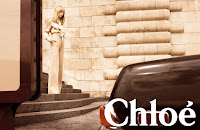 |
| When you were young you thought that being a narrator was basically not getting the main part in the nativity... |
 |
| Shop Assistant/ Window Dresser/ Dream Seller |
When you were at school you believed that being a narrator was reading out the boring bits in the school Nativity play. You weren't outgoing or pretty enough to play a Wise Man or Mary. Now you are older you know it can mean many things and it definitely doesn't mean reading out the boring bits. You realise during the process of devising from a short story adaptation that the narrators are the story-tellers, they are the audience's guide. Everything that happens, everything that doesn't happen is because of them. They stop and start the action, creating the story live. You thought when you first read the script that when you were being a narrator, i:e not a man, woman, mistress, wife, you might get a bit of down time; no real need to do character work on a narrator. And just like in the school Nativity play there are four of you narrating the action, in a tag team. As long as you emphasise the key plot words, smile and show off your polished general American accent, you can present the fruits of all your method acting skills when you get to play heroine Charlene. After 18 days of rehearsal you understand this idea of the narrator in a very different way. You understand that this piece of theatre, unlike your school Nativity play, operates on many different levels. The narrators/story-tellers create the frame-work for the performance, they make the rules, and once you have made the rules you have to follow them through, just like in any good game, the rules create the logic. At first this makes no sense, it sounds dumb, because you don't even know who these narrators are. You think to yourself the Nativity narrator at school was just a voice, characterless. Ask questions: Why are they here and why do they want to tell this story? What do they think about the story and do all the narrators want it to end in the same way? You are beginning to ask the right questions and they help you to unlock many of the ideas within the piece. As a narrator you are in the guise of a shop assistant, the world of the play is set in a shop, a shop that sells a dream, Think about selling and advertising and what happens when you buy into a dream that isn't yours, Why do people sell anything? You are becoming a better story-teller, your attitude to the story and the characters in it, you can just walk into the middle of a scene, talk to Charlene, make her do things. You are having a lot more fun than you were in your school Nativity. You decide that your narrator/shop-assistant/story-teller is a little bit like a fairy godmother - you can make Charlene's life better, you also realise that even though you tell Charlene to do something she doesn't always do it. It is times like these that you decide that you want to be Charlene. (Make a list of things still to do: Invite your 5th Grade school teacher to see this show to inspire a new generation of Nativity narration.)






























